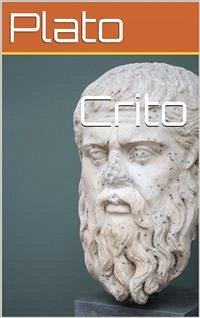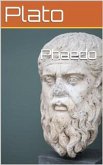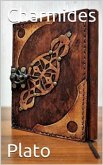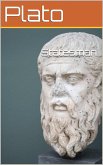Crito is a dialogue by the ancient Greek philosopher Plato. It depicts a conversation between Socrates and his wealthy friend Crito regarding justice, injustice, and the appropriate response to injustice. Socrates thinks that injustice may not be answered with injustice, and refuses Crito's offer to finance his escape from prison. The dialogue contains an ancient statement of the social contract theory of government.
In contemporary discussions, debate over the meaning of Crito attempt to determine whether it is a plea for unconditional obedience to the laws of a society.
In the early hours of the morning, before visitors may arrive to meet with prisoners, Crito arrives at Socrates' cell, and bribes the guard for entry. Once inside, he sits beside Socrates until he wakes up. When he woke up, Socrates made light of Crito's earliness, to which Crito expresses concern about how relaxed Socrates seems to be about his upcoming execution. To this, Socrates responds that he is almost 70 years old, and that to be scared of death now would be inappropriate.
Crito has come to see Socrates because he has learned that his execution will take place the next day, and wishes to rescue his friend. He plans to bribe all of the guards that are part of the execution, and assures Socrates that if he feels badly about using his friend's money, that he himself has enough money to see the plan through, and even if that weren't true, he has additional friends that are just as willing to pay. After being rescued from prison, Crito said, he would be taken to a home in Thessaly, where Crito and his friends would be more than happy to house and feed Socrates.
Crito also brings up the point that if Socrates were to be executed, his sons would be deprived of the privileges that the sons of a philosopher would be entitled to- namely a proper education and living conditions. Additionally, that if Socrates were not to come with them, it would reflect poorly upon Crito and his friends, as people would believe they didn't bother trying to spend money in order to save Socrates.
In contemporary discussions, debate over the meaning of Crito attempt to determine whether it is a plea for unconditional obedience to the laws of a society.
In the early hours of the morning, before visitors may arrive to meet with prisoners, Crito arrives at Socrates' cell, and bribes the guard for entry. Once inside, he sits beside Socrates until he wakes up. When he woke up, Socrates made light of Crito's earliness, to which Crito expresses concern about how relaxed Socrates seems to be about his upcoming execution. To this, Socrates responds that he is almost 70 years old, and that to be scared of death now would be inappropriate.
Crito has come to see Socrates because he has learned that his execution will take place the next day, and wishes to rescue his friend. He plans to bribe all of the guards that are part of the execution, and assures Socrates that if he feels badly about using his friend's money, that he himself has enough money to see the plan through, and even if that weren't true, he has additional friends that are just as willing to pay. After being rescued from prison, Crito said, he would be taken to a home in Thessaly, where Crito and his friends would be more than happy to house and feed Socrates.
Crito also brings up the point that if Socrates were to be executed, his sons would be deprived of the privileges that the sons of a philosopher would be entitled to- namely a proper education and living conditions. Additionally, that if Socrates were not to come with them, it would reflect poorly upon Crito and his friends, as people would believe they didn't bother trying to spend money in order to save Socrates.









